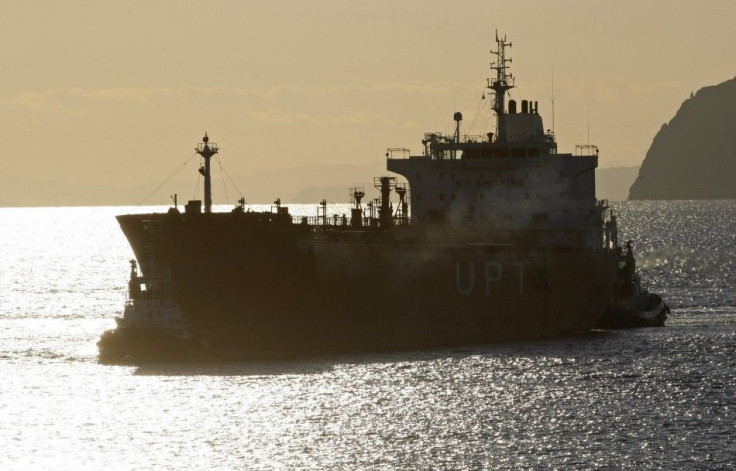New Geopolitics In The Indian Ocean Region?
Opinion

The Indian Ocean, sometimes called the maritime Silk Road, represents the profound linkages between the Middle East and a rising Asia. The trade and economic connectivity has been well understood for years. China, Japan and India rely heavily on oil from the Persian Gulf states, while a new economic interdependence has developed in manufactured goods, energy refinery capacity, food security and labor migration.
Far from the Washington chatter about the “pivot” to Asia somehow adversely affecting the Arab world, from the Indian perspective, Asia and the Middle East form a dynamic and interactive geopolitical space.
A recent conference I attended in Singapore recalled many of the historic flows of people, goods and ideas between the Middle East and Asia. These flows brought Islam to Southeast Asia, Indian and Sri Lankan workers to the oil-rich states, and deep cultural ties between Iran and Turkey on the one hand, and Central Asia and Western China on the other.
In the early 21st century, however, these linkages combine with uncertainties about American power and influence to raise new questions about the Middle East. Is it in play for China? Is there a contest for which great power (status quo or new) has the greatest responsibility and capacity to shape events in the volatile region?
Arabs and Asians worry about declining American power and influence in part because the public talk of budget woes and political dysfunction magnifies the effect of the debate. In reality, in absolute terms, the United States is still a uniquely capable player with a presence and range of programs that are more comprehensive than any other power, including China.
Only the U.S. can be active across the agenda of geopolitics, trade, humanitarian responses to natural disasters and protection of the global commons. Yet some interpret the “rebalancing” to Asia as a military-driven power play, and presume it comes at the expense of other equally important American interests.
Amid the criticism is a sense that American leadership is needed in a time of shifting power dynamics. Many realize that no Asian power or group can provide all the services that the sole superpower has been providing for two decades.
While some may be pleased at the image of a more restrained America that is withdrawing its forces from war zones, it is hard for others to calibrate the right amount of American power, presence and influence. There’s a Goldilocks dilemma: Neither the confident assertiveness of the George W. Bush era nor the introspective modesty of the President Barack Obama era is quite right.
Few see China as having the ambition or the capacity to be a major Indian Ocean power yet, or to assert its influence on the Middle East by land or by sea. But people may be lulled by Chinese rhetoric that emphasizes Beijing’s limited capacity and focus on its own economic development as the determinant of its external relationships.
China’s maritime objectives in shipbuilding and port construction around the Indian Ocean are driven by commercial interests, although it’s reasonable to assume that the large investments could later evolve or be adapted for military purposes. Some of China’s maritime activities are responding to an international demand that the nation contribute more to global problem-solving, so it now participates in anti-piracy operations, for example.
Yet there are signs of China repositioning itself in the Middle East in light of the turbulence and the setbacks to American interests. Two countries appear to be prominent in Chinese calculations.
On Iran, China insists it will oppose measures that could cause instability in that key energy partner. China has been willing to reduce -- but not halt entirely -- its energy trade with Iran, both for practical reasons and for principled ones. It does not want to cause economic stress that could lead to chaos in Iran, and it does not want to be too accommodating to Western demands to isolate and punish Iran for its non-compliance on nuclear issues.
Egypt is the other country where some Chinese experts see new opportunities. They believe they can help the Egyptians find a social and economic development model that will support economic growth without engendering political instability. The Chinese want Egypt to avoid the “Turkey model” premised on democracy, the free market and close ties to the West. Such an alternative course for Egypt would be a potent sign of reduced American influence in the Arab country of greatest consequence for the United States.
At the regional level, China sees no benefit whatsoever in rising sectarianism; it fears the impact on its own Muslim population.
The U.S.-China relationship is too complex to make any easy predictions, but the Middle East will certainly be a topic for consultations aimed at finding some areas for cooperation, despite some serious differences of view.
Both China and the U.S. want to ensure the Indian Ocean remains a vital transmission belt for global commerce. Both want to reduce the transnational problems of trafficking, terrorism and piracy. And both want the countries of the Middle East undergoing major transitions to find political and economic stability, even if they disagree about the desirability of democratic change.
Ellen Laipson is president and CEO of the Stimson Center, a nonprofit and nonpartisan think tank that studies peace and security challenges around the world.
© Copyright IBTimes 2024. All rights reserved.





















